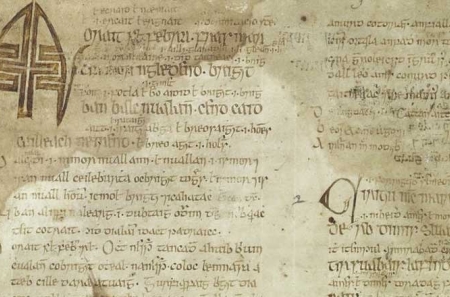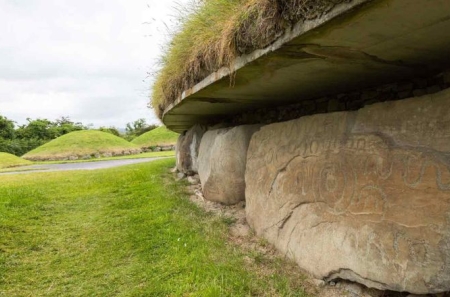
The Alliance Party of Northern Ireland: Are they really “other”?
02 June 2023The Alliance Party of Northern Ireland proudly regards itself as “other” in relation to Northern Ireland’s nationalist versus unionist division. It claims to take no position on Northern Ireland’s constitutional future. It believes in a shared Northern Ireland that is non-sectarian and at peace with itself.
But does the Alliance self-categorisation as “other” stack up? Critical theory tells us that Alliance is a unionist party. The critical approach would attest that by dodging the big constitutional questions and trying to “fix” Northern Ireland then Alliance is – by default – unionist. Alliance accepts the current broad constitutional status quo (Northern Ireland remains in the United Kingdom) but believes that Northern Ireland can be improved. Indeed, this liberal optimism – that human beings and institutions can be improved – without addressing fundamental issues of power, has attracted immense academic criticism of failed and misfiring attempts at peacebuilding. According to a critical theory standpoint, the Alliance Party of Northern Ireland are problem-solving, or tinkering with minor technicalities while failing to address the fundamental problem. The fundamental problem, lest we forget, is that a good number of Northern Ireland’s population don’t want the state to exist. And a good number believe firmly that Northern Ireland should remain part of the United Kingdom.
The Alliance position matters for two reasons. Firstly, the Party have been gaining votes over the past decade or so and – according to the May 2023 local government elections are Northern Ireland’s third largest party. Secondly, the trigger for calling for a border poll on Northern Ireland’s constitutional future rests on a determination made by the Northern Ireland Secretary of State on the likelihood of popular support for change. Whether a party regards itself as nationalist, unionist or other matters. Many analyses following the May 2023 local government elections split voting behaviour into the nationalist and unionist camps – leaving Alliance voters in the other category. For example, the BBC’s Darran Marshall Tweeted, on the basis of first preference votes, that ‘Nationalist parties won 40.5% of the vote. (SF, SDLP, Aontú)’ and ‘Unionists parties won 38.1% (DUP, UUP, TUV)’. In this view, nationalist parties gained more first preference votes than unionist parties. But what if Alliance was regarded as unionist? If Alliance can be regarded as unionist, then their 13.3% of first preference votes brings the unionist total up to 51.4% and so makes triggering a border poll even more unlikely.
To help interrogate whether Alliance deserve their self-proclaimed label as “other” it is worth looking at their political and cultural DNA. Historically, Alliance emerged from the New Ulster Movement, a late 1960s liberal unionist pressure group that sought to encourage the Unionist Party government to moderate. The Alliance Party’s own history describes the New Ulster Movement as “moderate” rather than “moderate unionist” yet the origins of the Movement were within unionism. Over the years, the Alliance Party has been consistent in its rejection of violence and desire to reform Northern Ireland. It has never had enthusiasm for significant constitutional change – preferring instead to maintain Northern Ireland’s position within the Union but on the basis on cross-community agreement. Former leader John Alderdice summed up the position as “Northern Ireland remaining within the United Kingdom for as long as the people of the North wanted it.”
Alliance’s discomfort with the constitutional question is evident in their response to initiatives and questions that have sought to address the issue. The Party stayed away from the September 2022 “Ireland’s Future” meeting (a position it shared with unionist parties), calling it “a rally to endorse a united Ireland” and voted against a motion in Belfast City Council for a New Ireland Forum and citizen assemblies. Yet the Party has attended other Ireland’s Future events.
Culturally, a sense of Irishness in the Alliance Party seems muted. Party conference speeches by leaders and deputy leaders tend to mention UK politics. Not so much politics south of the border. Of Members of the Legislative Assembly who have their nationality listed on Wikipedia, all are listed as “Northern Irish” rather than “Irish” (with one as “Irish-Zimbabwean”). Only one of the seventeen Alliance MLAs has a degree from the Irish Republic. The Party’s one supranational elected representative sits in Westminster, and its sister party is the UK-based Liberal Democrats. There is no equivalent linkage with a party in the Republic of Ireland.
Of course, the urge to shove the Alliance Party into a category, especially a unionist or nationalist category, says so much about Northern Ireland and its binarized ways. The Alliance position of not wanting to be categorised as one or the other seems to come from a place of wanting to make Northern Ireland a better place. Yet is there a disingenuous element to this? The overall picture that emerges is that Alliance is a unionist party, but it seems afraid to say so. Its unionism is different from the defensive politics of the Democratic Unionists and Traditional Unionist voice. Instead, it seems more in keeping with its origins of the late 1960s – a liberal and moderate unionism that believes that Northern Ireland (within the United Kingdom) can be reformed. Increasing talk of a border poll might pose a challenge for the Alliance Party and its electoral rise. The binary nature of debates surrounding the poll (should there be one: yes or no; would you support a united Ireland: yes or no?) means that the Alliance position of navigating a way around constitutional questions may be difficult to maintain. Yet the Alliance position of soft unionism will be very useful to British governments. No British Prime Minister – Conservative or Labour – will want to be seen as the last Prime Minister of Northern Ireland (or Scotland). The Alliance position as “other” will help Secretaries of State kick that can down the road.
Roger Mac Ginty is Professor at the School of Government and International Affairs, and the Durham Global Security Institute, both at Durham University. He is founder of the Everyday Peace Indicators project and edits the journal Peacebuilding. His latest book, Everyday Peace: How so-called ordinary people can disrupt violent conflict (Oxford: Oxford University Press, 2021), won the Ernst-Otto Czempiel Award for best book on peace 2020-2022.



